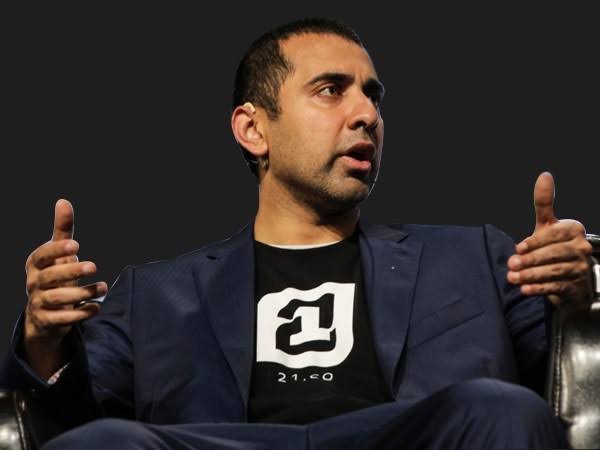Speaking at Ethereum Hackathon ETHSan Francisco,The CTO of Coinbase, Balaji

Speaking at Ethereum Hackathon ETHSan Francisco,The CTO of Coinbase, Balaji S. Srinivasan, has opined that the banking movement which seeks to make a distinction between private blockchain, bitcoin and so on, is hardly worth the hype it has generated in recent days. The stance of finance executives like the ones in JP Morgan that bitcoin and blockchain can exist as separate entities is clearly not an idea that logically appeals to Srinivasan. He went on to say that to assume blockchain can exist without bitcoin would mean turning the technology into nothing but a “dead end”.
He stated:
“I always respect folks who are working hard and respect entrepreneurs, and so on. I do think that the whole banking movement of blockchain not bitcoin, private blockchain and so on, is arguably overrated.”
The CTO went on to explain his stance, saying that if blockchain is deprived of having a virtual currency or asset that is native to the network, then it ends up losing a great deal of its strength and influence. While he believes that private blockchains can work with a private ICO designed in the form of a collaborative effort, the companies that form the consortium hold a part of the stake in tokens. To strip that feature from a blockchain network would be akin to destroying the very precept of this technology, even if it does continue to function in certain spheres.
Bitcoin’s connection to blockchain has always been an intriguing one, and since 2014-15, many commentators have begun questioning whether or not it was possible to sever the link between the two and have them exist as standalone technologies. A former JP Morgan honcho, Blythe Masters, had begun to posit the idea that bitcoin’s chief contribution to the fintech industry had been blockchain and isolating this technology could lead to a host of applications in other sectors and spheres. Ethereum-powered smart contracts technology gave fuel to the concept in 2016 and the idea really took off the following year. A large number of sectors, ranging from automobiles to marijuana delivery, started embracing the potential of blockchain in marketing, managing and retailing household and industrial products or services.
Srinivasan believes that it is imperative for a blockchain to have some kind of a token. Commentators believe that by this, he is hoping to retain the monetary incentive part of the system which makes it nearly impossible to alter the database, or he’s considering the fact that tokens can be transferred with relative ease. Whichever it may be, his comment was targeted squarely at private blockchains operating within the banking sector, and not the ones that have moved beyond this industry. The idea behind private blockchains was to have an experimenting space, before an idea is posited onto a public blockchain. Some also believe it is a useful way to weed out untrustworthy participants in a network and make transactions visible only to trusted parties.
When it comes to private blockchain in the banking sector, both sides seem to be offering compelling arguments. Only time will tell if it is really worth separating the two.
